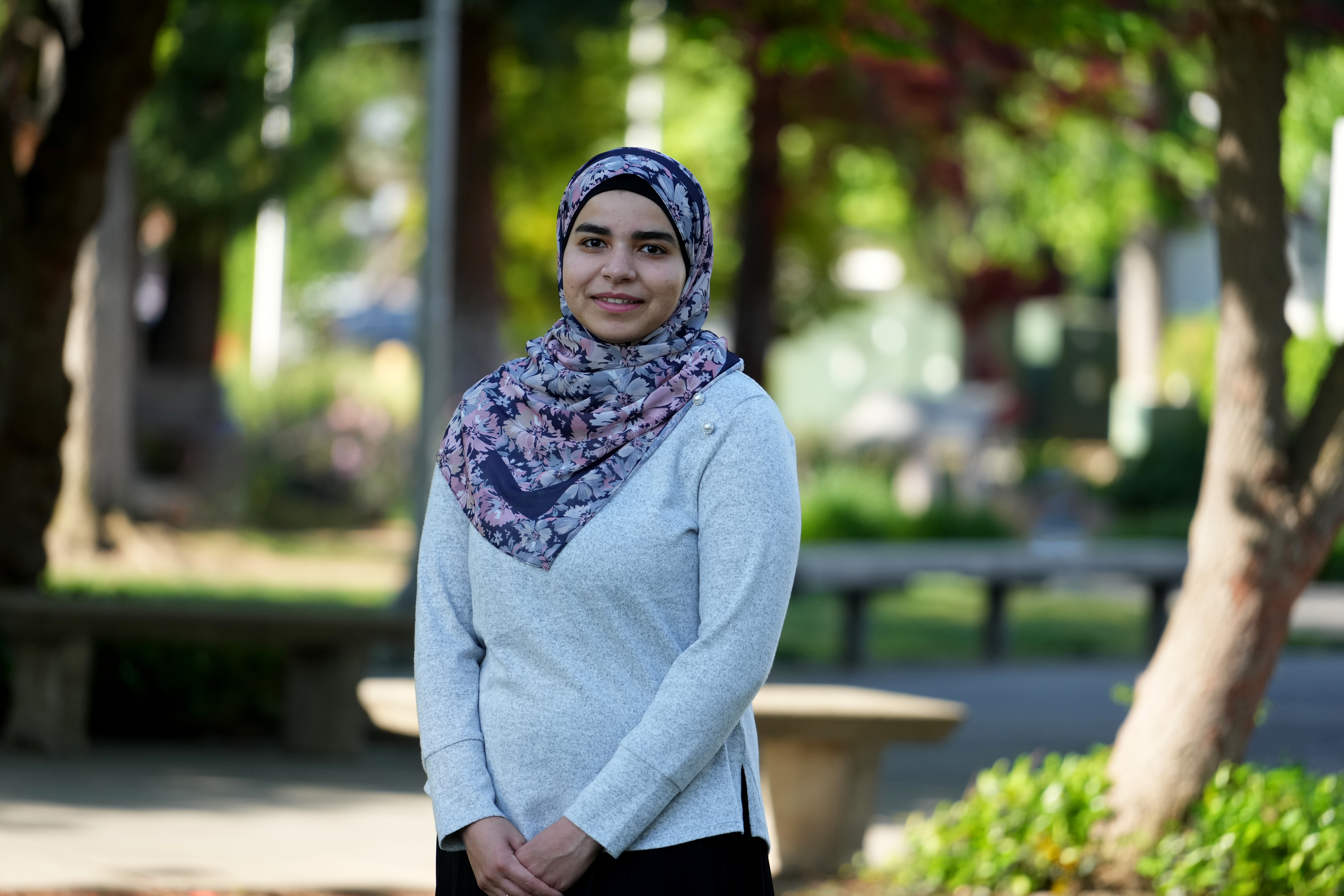Division of Equity and Engagement

Aya Elhabashy (she/her)
Student, Faculty, Teaching Assistant
I am a 24-year-old Muslim women. I am Egyptian, the youngest among my siblings, and a daughter to amazing caring parents.
Q: What does equity, diversity, inclusion and belonging mean to you?
A: I would like to quote a verse from the Holy Quran: "O mankind! We have created you from a male and a female, and made you into nations and tribes, that you may know one another." [49:13]. As a student and as a TA at Fresno State, equity, diversity, and inclusion is one thing I wish to see practiced in all societies. They are the means for creating a respectful environment where each individual feel comfortable and that they belong- a sense that every human being deserves! We all live under the same sky and breathe the same air, thus, equity, diversity, inclusion, and belonging is what helps us tolerate one another and remember that we are all human beings.
Q: How have your intersecting identities played a role in who you are today?
A: I am a Muslim woman who wears a hijab, and I take pride in my identity. I have chosen this religion, and it empowers me to be true to myself. Expressing my identity in this way makes me feel unique. In Islam, I find that my rights as a woman are protected and valued. The core values of Islam emphasize the importance of every human life and promote respect for all. This faith has instilled strong work ethics in me, enabling me to perform my obligations diligently. It guides me to be honest, considerate of others, and to advocate for humanity and human rights. Islam isn't just a belief system for me; it's a way of life.
Q: To what extent are you able to bring your full self to campus each day? Or, to
what extent were you able to bring your authentic self to campus each day during your
time as a student?
A: As an undergraduate student, I struggled to express my true self on campus every day. There were moments when I felt distinctly out of place, even in the simple act of taking notes. I preferred using concept maps, which some found odd. Feeling uncomfortable with the attention drawn to me, I felt compelled to alter my note-taking and organizational methods just to avoid standing out. It's difficult when one feels so different that they feel the need to change every aspect of themselves to fit in. I understand that such reactions often stem from unfamiliarity, but rather than viewing differences as 'weird,' we can always take the opportunity to learn from and about one another.
Q: How would you improve inclusivity and belonging on campus? Or, how have you seen
inclusivity and belonging on campus evolve since you were a Fresno State student?
A: I have seen it when I engaged in interesting conversations with my professors. I have felt it with my friends at Fresno State who always respected my values and beliefs and accepted me for who I am.
Q: How can each of us make an increased commitment to ensure people of every identity
feel welcomed, included and that they belong?
A: Sometimes, it's as simple as treating others with more humanity and empathy. Before we speak or act, we should consider whether our words or actions are kind and if we would feel happy if they were directed towards us. I firmly believe that no religion advocates for the dehumanization of others. I also believe that every human being possesses a kind heart, which they can choose to nurture in order to care for others.